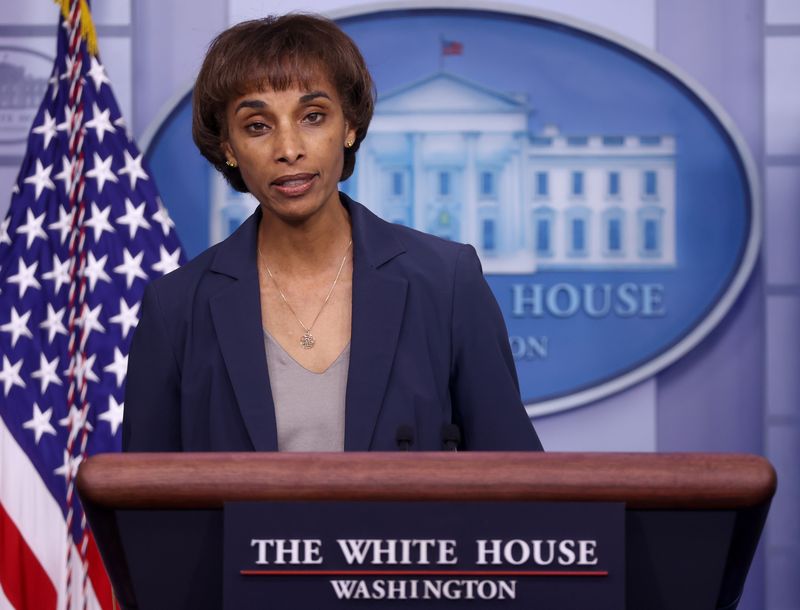WASHINGTON (Reuters) -Russia's war in Ukraine will drive energy and food prices higher, but inflation rates should still ease in the coming year, U.S. President Joe Biden's top economic adviser said on Monday.
Cecilia Rouse, who chairs the White House Council of Economic Advisers, said the $5.79 trillion budget plan for fiscal 2023 released by the White House on Monday was based on assumptions locked in on Nov. 10, well before the invasion, but the economy was generally stronger than expected then.
"There's tremendous uncertainty, but we and other external forecasters expect that inflation will ease over the coming year," Rouse told reporters as the White House released the budget proposal, which must now be considered and enacted by a deeply divided Congress.
Rouse said the White House would revise its economic assumptions later in the year, incorporating the war in Ukraine and its impact on inflation.
As locked in last November, the budget proposal assumed real expansion of the U.S. gross domestic product of 2.8% in fiscal 2023 compared to 4.2% in fiscal 2022 and 5.5% in fiscal 2021.
It assumed a 2.3% increase in the consumer price index in fiscal 2023, down from a 4.7% increase in fiscal 2022 and a 4.6% increase in fiscal 2021.
In November, Rouse told reporters, the White House had forecast that inflationary pressures would ease as the economy started to normalize with a lessening of supply chain pressures, rolling back of fiscal support for the economy, and interest rate hikes by the Federal Reserve.

Russia's invasion would "create additional price pressures over the coming year" but the fundamental factors underpinning the economy should continue to improve, she said.
Rouse gave no specific forecast for the impact of the war or how much it could increase the rate of inflation.